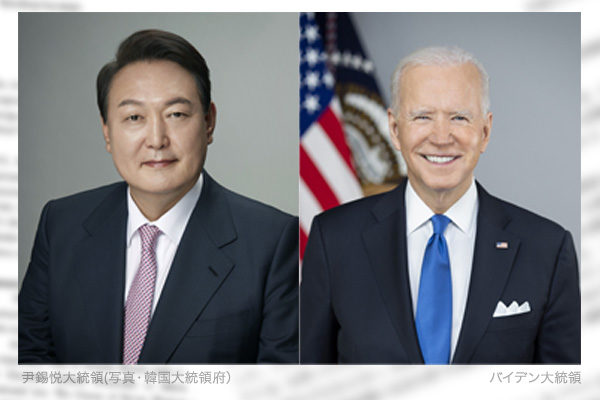Given the fact that China, Russia and North Korea are all armed with nuclear weapons, we can conclude that Japan and South Korea are put in a dangerous international environment unexemplified in the world. This is the reason Japan and South Korea have depended entirely on U.S. extended deterrence. But the prestige of the United States has begun to waver.
Backed by growing public support for the acquisition of its own nuclear weapons, South Korean President Yoon Suk Yeol in his speech at Harvard University emphasized that he and U.S. President Joe successfully upgraded existing extended deterrence for South Korea. As South Korea has embarked on coordinating approach to the nuclear issue with the U.S., it might be grotesque for Japan to stick to its official position of retaining so-called three non-nuclear principles – not possessing, not producing and not allowing the introduction of nuclear weapons into the country.
Unconcealable decline in U.S. prestige
Little discussion is seen in Japan on how much the U.S., the largest ally for Japan and South Korea, has been waning. Here I cite two recent examples indicating the U.S. decline. First, China mediated an Iran-Saudi Arabia agreement to normalize their bilateral diplomatic relations. While it is difficult to predict whether the two former rivals could develop their relations smoothly, we can assume that the normalization should have come as a great shock for Washington. U.S. policy on the Middle East originated from an event on a U.S. cruiser at the Suez Canal in the final days of World War II, where then U.S. President Franklin D. Roosevelt at a meeting with then Saudi Arabian King Saud ibn Abd al-Aziz obtained oil supply routes in exchange for a promise of security for Saudi Arabia. This basic framework for U.S.-Saudi relations has collapsed, while China has secured a key region for its Belt and Road Initiative to expand its sphere of influence.
Second, the U.S. not only has kept away from direct military intervention in the Ukraine war for more than one year but also has been stuck in Russian President Vladimir Putin’s frequent nuclear intimidation. It is natural especially for Japan and South Korea depending on the U.S. nuclear umbrella to feel insecure about the existing U.S. extended deterrence. If Yoon’s U.S. visit was inspired by his sense of ultimate national security, we might have to reevaluate his accommodating Japan policy.
I read a report by two budding U.S. researchers titled “South Korea’s Nuclear Options” on the web edition of the U.S. Foreign Affairs magazine. It explained the background of South Korea’s tough choice in the face of three nuclear options – (1) arming itself with nuclear weapons, (2) reintroducing U.S. nuclear weapons on its soil and (3) nuclear sharing adopted by some of North Atlantic Treaty Organization (NATO) members. South Korea has gone far ahead of Japan on the nuclear issue.
Don’t overrate three strategy documents
In Japan, the government’s three security strategy documents adopted late last year have been given high ratings. Some boast that Japan’s defense spending will be doubled to 2% of gross domestic product soon. However, the Self-Defense Forces have been put under a police law system since the days of their predecessor, the National Police Reserve. The three non-nuclear principles have been retained. The government still sticks to the exclusively defense-oriented policy, limiting defense capabilities to the “minimum necessary.” If an SDF officer kills an enemy, the officer could be charged with murder under the penal code in the absence of a military court. These abnormalities have been unchanged.
A call for raising defense spending to 3.5% of GDP is growing at NATO. Why does not Japan realize that it is lagging behind other countries of the Free World?
Tadae Takubo is Vice President, Japan Institute for National Fundamentals, and a professor emeritus at Kyorin University.


